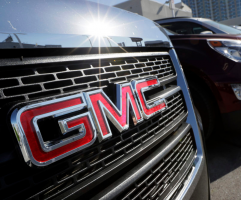— A GM piston ring lawsuit failed class action certification and was mostly dismissed after a federal judge ruled the plaintiff didn't adequately plead that multiple Chevrolet and GMC vehicles suffer oil consumption problems.
General Motors made the subject 5.3L Vortec 5300 engines available in these vehicles which are allegedly affected by piston ring problems.
- 2010–2014 Chevrolet Avalanche
- 2010–2013 Chevrolet Silverado
- 2010–2014 Chevrolet Suburban
- 2010–2014 Chevrolet Tahoe
- 2010–2013 GMC Sierra
- 2010–2014 GMC Yukon
- 2010–2014 GMC Yukon XL
Plaintiff Kelly Harris owned a used 2012 Chevrolet Silverado he received in 2012 from his former employer as part of a separation agreement. The Silverado was equipped with a 5.3 liter V8 Vortec 5300 LC9 engine, but the engine allegedly soon had fouled spark plugs which caused the engine to misfire.
Harris says the spark plugs had to be replaced in 2014.
In 2015 the plaintiff noticed alleged oil consumption problems caused by the spark plug issues. A dealership allegedly said the truck was low on oil and had fouled spark plugs caused by excessive oil consumption due to a problem with the piston rings.
The plaintiff claims he was told the piston rings in the engines do not maintain sufficient tension to prevent oil from being consumed in the combustion chamber. This fouls the spark plugs and creates carbon buildup in the pistons and cylinders.
Harris argues GM knew about the piston ring and oil consumption problems because the Vortec engines were redesigned due to complaints about the vehicles. The automaker also issued technical service bulletins (TSBs) to dealerships about excessive oil consumption.
According to the lawsuit, piston ring problems and excessive oil consumption creates a safety risk because the engine may catch fire or strand occupants on the roads.
Harris claims he would not have purchased his truck or would have paid less for it had the alleged oil consumption defect and piston ring problems been disclosed.
General Motors filed a motion to dismiss the lawsuit, and the judge agreed with the automaker and dismissed most of the claims made by the plaintiff.
Harris alleges GM breached its express warranty that it would cover repairs to correct any vehicle defect “related to materials or workmanship during the warranty period.”
But the judge ruled courts find that similar warranties only cover manufacturing warranties, not design defects. In addition, the express warranty claim was dismissed because the plaintiff didn't allege his problems with the Silverado engine occurred during the limited warranty period.
According to the judge, Harris' Magnuson-Moss Warranty Act claim is also automatically dismissed because his express warranty claim was dismissed.
A Washington Consumer Protection Act claim against GM also failed because the plaintiff was required to allege "deceptive advertising, causation, and injury with specificity."
The judge ruled Harris failed to allege "he relied on any particular GM statement or advertisement when he obtained his GM vehicle for consideration in his separation agreement with his former employer."
And according to the judge, the claim of unjust enrichment does no better because a "party seeking to recover under a theory of unjust enrichment must show that the plaintiff conferred a benefit upon the defendant."
The plaintiff doesn't dispute he didn't purchase or lease his vehicle, and doesn't allege he "conferred a benefit upon GM." Instead, the plaintiff argues courts in Washington have no such requirement.
But the judge ruled the plaintiff is wrong because Washington law does require a showing of “a benefit conferred upon the defendant by the plaintiff.”
Judge Thomas S. Zilly ruled the plaintiff may replead a few of the claims, but most were dismissed with prejudice, including the claim concerning a nationwide class action lawsuit.
The GM piston ring lawsuit was filed in the U.S. District Court for the Western District of Washington at Seattle: Harris, et al., v. General Motors LLC.
The plaintiff is represented by Tousley Brain Stephens PLLC, DiCello Levitt Gutzler LLC, Beasley, Allen, Crow, Methvin, Portis & Miles, P.C.
CarComplaints.com has complaints about the vehicles named in the GM piston ring lawsuit.
Chevrolet Avalanche Complaints - 2010 / 2011 / 2012 / 2013
Chevrolet Silverado Complaints - 2010 / 2011 / 2012 / 2013
Chevrolet Suburban Complaints - 2010 / 2011 / 2012 / 2013 / 2014
Chevrolet Tahoe Complaints - 2010 / 2011 / 2012 / 2013 / 2014
GMC Sierra Complaints - 2010 / 2011 / 2012 / 2013
GMC Yukon Complaints - 2010 / 2011 / 2012 / 2013 / 2014

